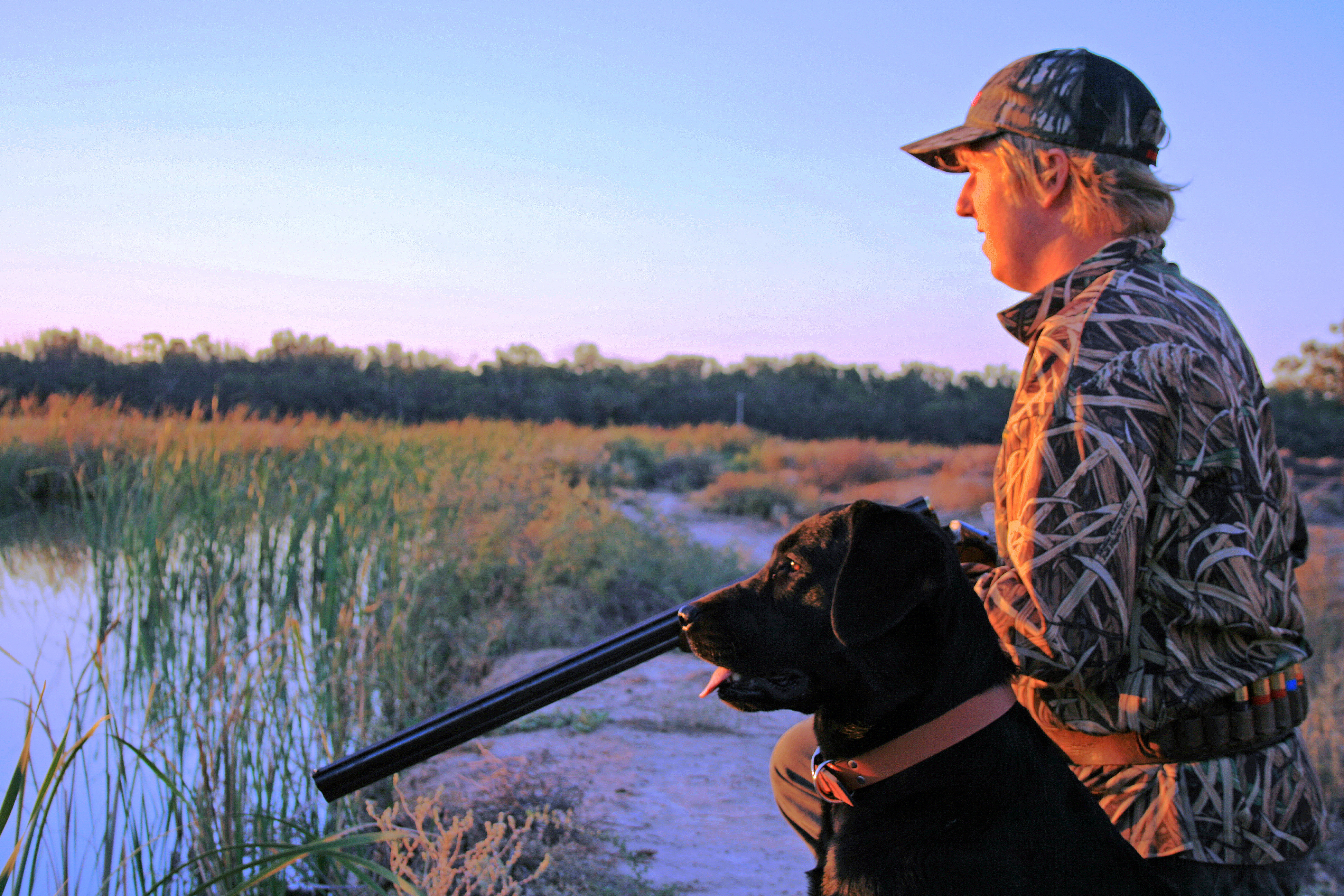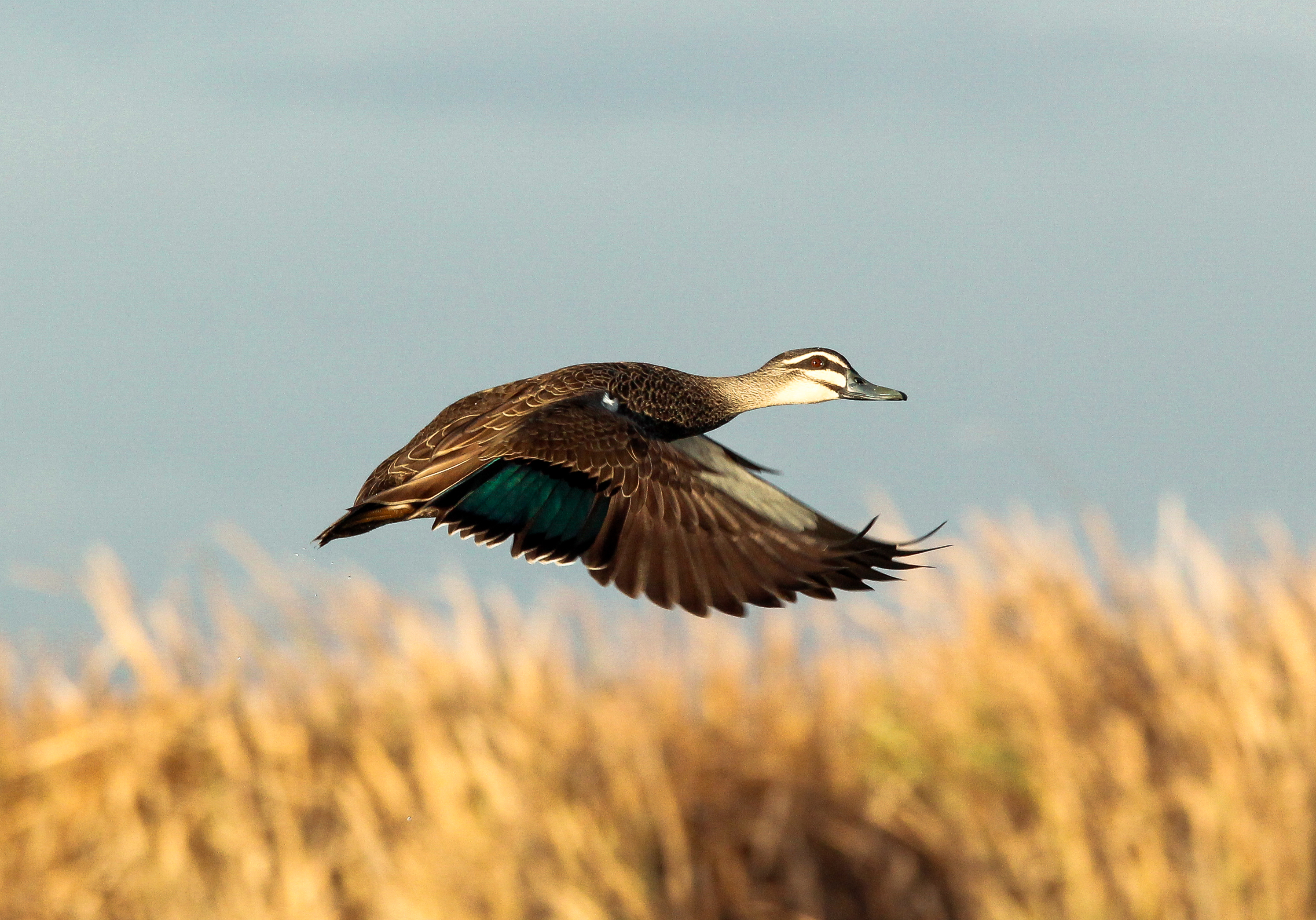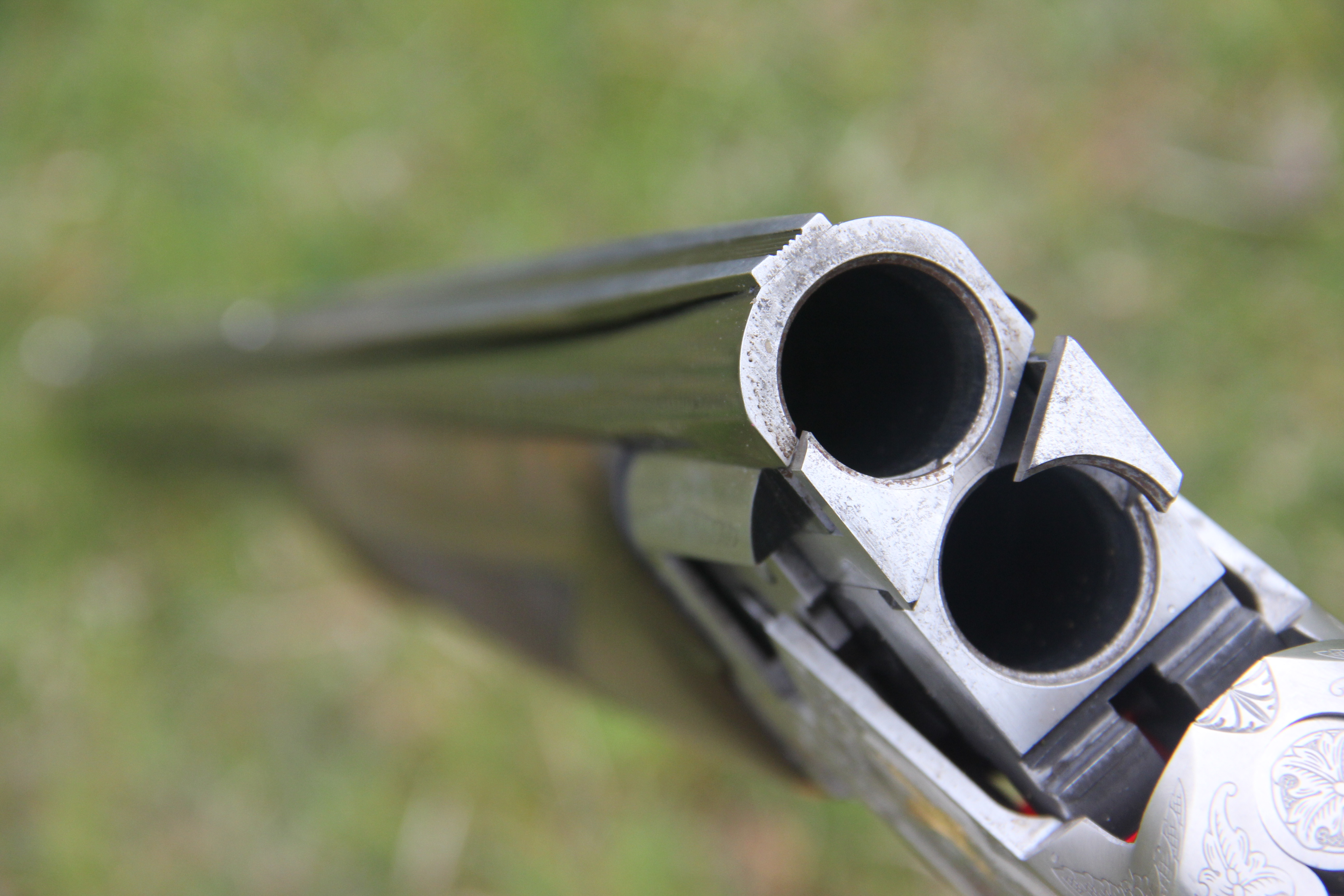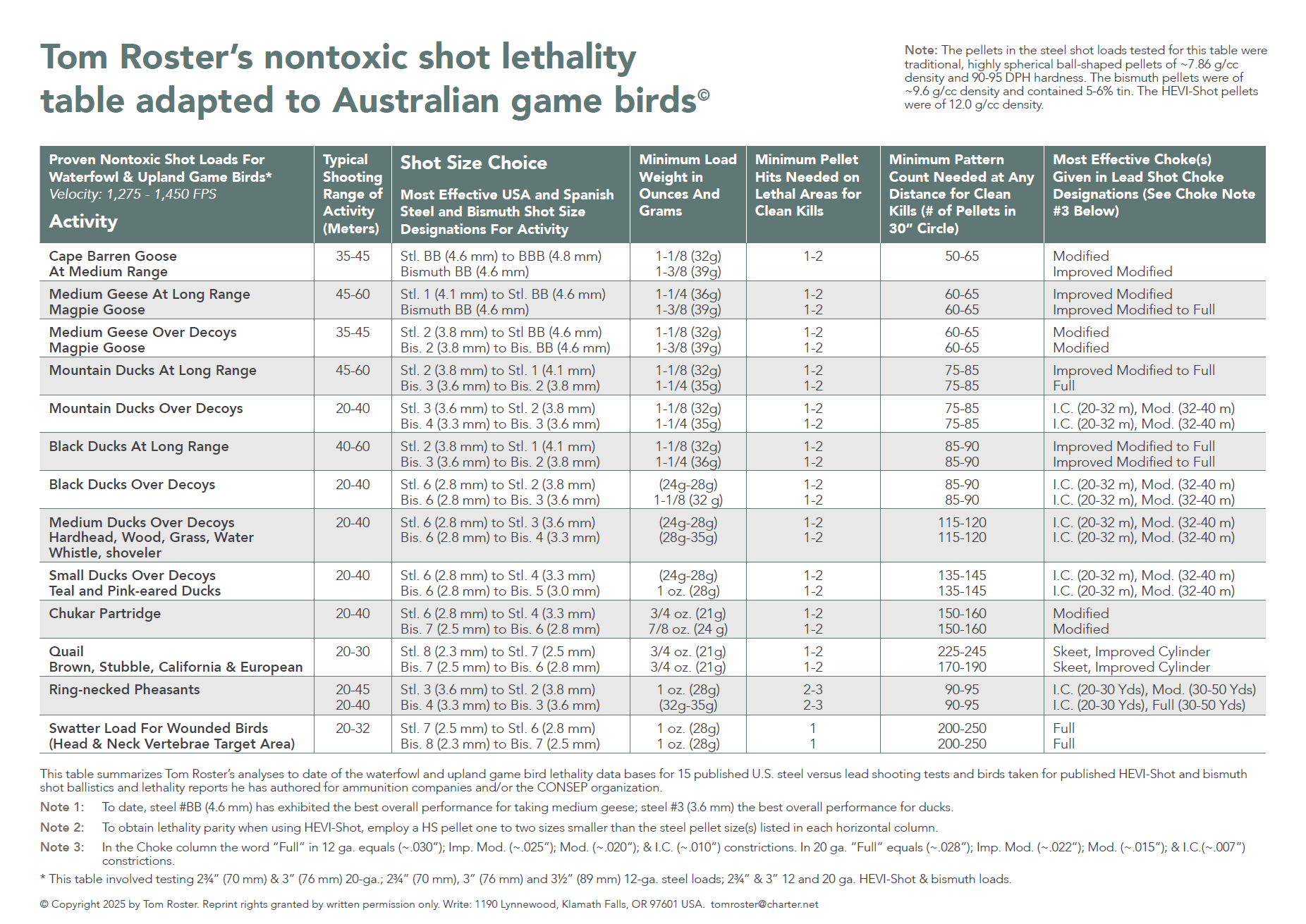Duck hunting methods and laws
 In Victoria, you can only use a shotgun to hunt ducks that does not exceed 12 gauge or have more than two barrels. Only non-toxic shot can be used and hunters caught using or possessing lead shot run the risk of fines, firearms seizure and court.
In Victoria, you can only use a shotgun to hunt ducks that does not exceed 12 gauge or have more than two barrels. Only non-toxic shot can be used and hunters caught using or possessing lead shot run the risk of fines, firearms seizure and court.
You must have passed the Waterfowl Identification Test in order to obtain a game licence to hunt ducks. Make sure you have a valid game and firearms licence when you are hunting.
All hunters must leave a fully-feathered wing on any harvested duck until immediately prior to cooking or until the duck has been taken to the person's ordinary place of residence. This allows Authorised Officers to quickly and accurately identify all waterfowl in a hunter's possession.
Duck hunting laws
Recreational duck hunting in Victoria is managed sustainably, with the bag limits and season dates set to ensure that hunting does not threaten the conservation status of game duck species.
Duck seasons arrangements may change from time to time; and hunters should always check current regulations, season dates, and bag limits.
Some game species may be protected from hunting at particular times, such as during drought, or bag limits may be changed in response to population numbers and/or environmental conditions.
 Game ducks can be hunted during the open season. Restrictions on the species and bag limits may be imposed when conditions require. There are eight species of native duck declared to be game. They are:
Game ducks can be hunted during the open season. Restrictions on the species and bag limits may be imposed when conditions require. There are eight species of native duck declared to be game. They are:
- Black Duck
- Grey Teal
- Chestnut Teal
- Hardhead
- Blue-winged Shoveler (cannot be hunted)
- Pink-eared Duck
- Mountain Duck
- Wood Duck
NB. While the Blue-winged Shoveler is a declared game species, it has a year-round closed season and cannot be hunted at any time.
The bag limit, season length and the species that may be hunted is set each year and may change from time to time. Hunters must always check the arrangements for that year’s season before hunting.
For the first five days of the open season (i.e. Wednesday – Sunday, inclusive), duck hunting is permitted from 8am on each day until 30 minutes after sunset. After that and until the end of the season, duck hunting is permitted from 30 minutes before sunrise to 30 minutes after sunset.
Sunrise and sunset times vary throughout the state; therefore, during the season, legal hunting times also vary. The following information will help you calculate the legal hunting times in your area.
- Sunrise and sunset times alter by four minutes for each degree of longitude across the state. Victoria extends from 141° in the west to 150° in the east. Melbourne is near the 145° line.
- Use the official Melbourne sunrise and sunset times as your starting point to calculate the sunrise and sunset times of your location. If your hunting location is east of 145° (Melbourne), subtract four minutes from the official sunrise and sunset times for each degree of longitude. Anywhere west of the Melbourne line, add four minutes to the official sunrise and sunset times for each degree of longitude.
- Early hunting (before 8am on the opening day of the season) constitutes hunting out of season. Heavy penalties apply, which may include losing your Game and Firearm Licences and/or your firearm or other hunting equipment.
- Penalties also apply for early and late hunting during every other day of the duck season
There are a number of phone apps available which can calculate the sunrise and sunset times from your hunting location.

Hunters must only use or have in their possession non-toxic shot when hunting ducks. This includes duck hunting on all wetlands, waterways, and drylands on public and private land.
Under the Wildlife (Game) Regulations 2024, hunters are no longer exempt from using non-toxic shot if they are using a muzzle-loading, Damascus steel, or twist-barrelled shotgun. Under the new regulations, hunters can no longer use lead shot while hunting any game bird (i.e. game ducks, Stubble Quail and non-indigenous game birds – e.g. pheasants, partridges) regardless of whether it is on public or private land.
A person can have toxic shot in their possession provided it is secured in a vehicle.
For toxic shot to be secured in a vehicle, the ammunition must be stored in a closed case or container and stowed in the boot or storage area (not in the glove box) of a sedan, dual cab, or wagon. For a single cab or ute, the ammunition must be stored in a closed case or container and stowed in a part of the vehicle not readily accessible by any occupant of the vehicle.
The following non-toxic shot types are permitted for game bird hunting in Victoria:
- Bismuth-tin
- Iron (steel)
- Iron-tungsten
- Iron-tungsten-nickel
- Tungsten-bronze
- Tungsten-iron-copper-nickel
- Tungsten-matrix
- Tungsten-polymer
- Tungsten-tin-iron
- Tungsten-tin-bismuth
- Tungsten-tin-iron-nickel
- Tungsten-iron-polymer
Refer to Schedule 6 of the Wildlife (Game) Regulations 2024 for further details about the percentage composition by weight for each metal.
Under the Wildlife (Game) Regulations 2024, hunters must leave a fully feathered wing on all ducks taken. This is to ensure that ducks can be easily identified by Authorised Officers. The feathered wing can be removed only immediately prior to cooking or after hunters have returned home. The practice of breasting ducks is acceptable, providing a fully feathered wing remains attached to the breast after it is removed from the carcass.
In waterways (e.g. rivers, creeks, and streams), you are allowed to hunt ducks from a boat under power up to a speed of 5 knots. See the below illustration for other things you must consider when hunting on waterways.
In open water (e.g. lakes, dams, or swamps), you are not permitted to hunt ducks from a boat with the motor running whether in gear or not.
Lethality Table
Tom Roster’s Nontoxic Shot Lethality Table Adapted to Australian Game Birds provides important, evidence-based guidance on shot size, choke and load selections to effectively harvest Australian game birds. The Table provides minimum pattern counts (i.e. the number of pellets in a 30-inch circle) needed to achieve clean kills. This information is critical when pattern testing to select the best choke and load combinations for a shotgun.
Tom Roster’s Nontoxic Shot Lethality Table Adapted to Australian Game Birds summarises Tom Roster’s analyses at the time of publication of the waterfowl and upland game bird lethality data bases for 15 published U.S. steel versus lead shooting tests. It also includes birds taken for published HEVI-Shot and bismuth shot ballistics, and lethality reports he has authored for ammunition companies and/or the CONSEP organisation.
Understanding your equipment and how it performs is critical to being a responsible gamebird hunter. With the most effective load and choke combination and regular practice, you’ll be more successful in the field and REDUCE Wounding.
Note: Bismuth shot sizes for quail are the smallest bismuth pellets currently manufactured.
